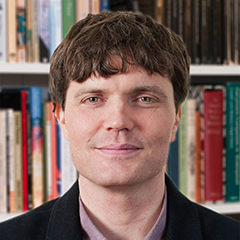You are not currently logged in. Please create an account or log in to view the full course.
What is Democracy?
- About
- Transcript
- Cite
How Democratic is the UK?
In this course, Professor Andrew Blick (KCL) asks how truly democratic the UK is in practice. In the first lecture, we explore the origins of democracy and its importance to the modern UK, orienting our discussion around two aspects of democracy: popular control and equality. In the second lecture, we explore the all-important question of participation in a representative democracy. In the third lecture, we consider the role of civil and political rights in a democracy and the extent to which these rights are met in the UK. The fourth lecture is structured around an interrogation of the theory and practice of parliamentary sovereignty, involving structural and institutional considerations such as devolution, referendums, and the First Past the Post electoral system. In the fifth lecture, we explore the extent to which the uncodified or “unwritten” UK Constitution has an impact on how democratic the UK is in practice and consider the case for reform. Then, in the sixth and final lecture, we turn to the hotly debated subject of media and communications and the impact of this on democracy.
What is Democracy?
In this module we explore the origins of democracy and its importance to the modern UK, focusing in particular on: (i) popular control: the notion that government actions are rendered legitimate by the consent – tacit or explicit – of the people; (ii) equality: the notion that all citizens should hold the same political rights and enjoy equal opportunities to participate in the democratic community. This formulation for understanding democracy will structure our discussion over the coming lectures and give us a foundation from where we might assess how democratic the UK really is in practice.
Cite this Lecture
APA style
Blick, A. (2022, January 18). How Democratic is the UK? - What is Democracy? [Video]. MASSOLIT. https://massolit.io/courses/how-democratic-is-the-uk/media-and-communications
MLA style
Blick, A. "How Democratic is the UK? – What is Democracy?." MASSOLIT, uploaded by MASSOLIT, 18 Jan 2022, https://massolit.io/courses/how-democratic-is-the-uk/media-and-communications

